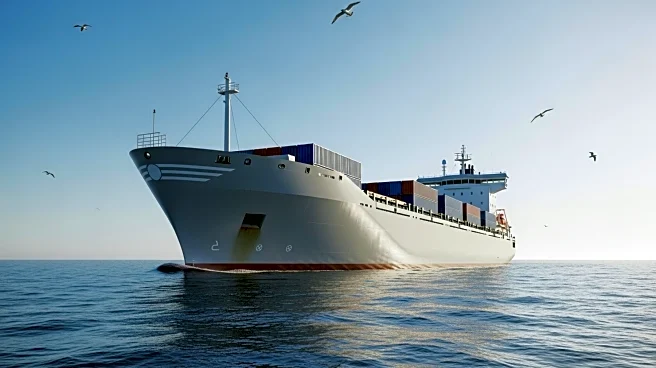What's Happening?
The Cass Freight Index, a key indicator of freight volumes and market conditions, reported a decline in freight shipments and expenditures for August. The shipments reading fell 9.3% annually and 1.5% compared to July, indicating a persistent downturn in freight activity. Despite an increase in truckload freight, less-than-truckload (LTL) volumes have significantly declined. Container and intermodal volumes showed improvement from the previous year. The expenditures reading also saw a decrease, falling 0.4% annually and 2.8% from July to August. The report highlights a shift in freight mix from LTL to truckload, contributing to a rise in shipment costs.
Why It's Important?
The decline in freight shipments and expenditures as reported by the Cass Freight Index is significant for the U.S. logistics and transportation sectors. It reflects ongoing challenges in freight activity, which can impact supply chain efficiency and costs for businesses relying on freight services. The shift from LTL to truckload freight suggests changes in shipping preferences and cost structures, potentially affecting pricing strategies and operational decisions for logistics companies. This downturn may influence broader economic indicators, as freight volumes often correlate with economic health and consumer demand.
What's Next?
The Cass Freight Index suggests that the freight downturn may continue, with a projected 7% year-over-year decline in shipments for September. Logistics companies and shippers may need to adapt to changing freight dynamics, possibly reevaluating their strategies to mitigate the impact of declining volumes and rising costs. Stakeholders in the freight industry might focus on optimizing operations and exploring alternative shipping methods to maintain competitiveness in a challenging market environment.
Beyond the Headlines
The ongoing decline in freight activity could have long-term implications for the U.S. economy, potentially affecting employment in the logistics sector and influencing trade patterns. As companies adjust to these changes, there may be increased interest in technological innovations and efficiency improvements to counteract the downturn. Additionally, environmental considerations could play a role in shaping future freight strategies, as businesses seek sustainable solutions amid shifting market conditions.









